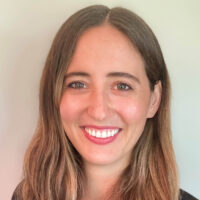Duke Daytime MBA Student Blog

A Women’s Guide to Recruiting for Investment Banking
It happened every time. Almost intuitively, as I walked into a packed room of investment banking prospects, I immediately knew exactly how many other women were present. You could usually count us on one hand.

It happened every time. Almost intuitively, as I walked into a packed room of investment banking prospects, I immediately knew exactly how many other women were present. You could usually count us on one hand.
Although the financial sector has made strides towards greater representation of women, I was still surprised by how few female counterparts I had recruiting for investment banking at Fuqua (we make up about 30 percent of the group). So if you’re a woman at Fuqua interested in pursuing investment banking, here is my advice on how to thrive during recruiting season.
1. Don’t do it alone.
I never could have imagined my ‘random’ roommate, Hebe, would end up being foundational to my investment banking recruitment experience. Hebe and I first met on a choppy Zoom call the summer before school and soon after school started we realized we both would be recruiting for investment banking.
Despite the excellent career resources available at Fuqua, we found it still critical to build your own support networks. In the most frenzied and intense moments of first-year recruiting (and there were many), my friendship with Hebe kept me focused and boosted my confidence. Beyond our interview debriefs in our kitchen and finance study sessions in the living room, Hebe and I provided each other much-needed emotional support and a sympathetic ear for really stressful times. Once we start our full-time jobs, the community we have built at Fuqua will continue to grow, support, and inspire each other’s endeavors.
2. Lean into Team Fuqua.
The Fuqua investment banking recruiting process is well structured and employs formal and informal teams to support candidates each step of the way. In my experience, recruiting for investment banking, especially as a woman, brought out the spirit of “Team Fuqua.” For example, I would check in daily with my assigned second-year mentor, who also became a close friend. My first-year classmates and I would share how our unique attributes and backgrounds contribute to our cohort’s greater good. I felt my strengths were in storytelling and behavioral questions, while I relied heavily on my finance friends to help me understand quantitative questions on P/E ratios. Second-year classmates offered us hours of their time to construct trainings, mock interviews, and technical resources. Above all, our cohort focused on building up each other’s candidacies, recruiting more as a team than as rivals. Collaboration, not competition, ultimately helped us succeed at Fuqua.
3. Have fun along the way.
There’s no denying the interview process is nerve-wracking. We stayed sane by combining our social activities with technical studying through wine nights or group study sessions. We even found humor in the process. We still laugh about the time a male banker commented to one of my female classmates that she must be a Yankees fan, having grown up in the Bronx. She nervously responded, “Oh, I don’t know football very well.”
4. Know your strengths but focus on your weaknesses.
One of my biggest surprises was how heavily the process focused on networking and soft skills, such as interpersonal communication, congenial attitude, and professionalism. While you are recruiting for the associate role, bankers are actually recruiting for future managing directors, who manage relationships and can navigate social situations and rapport building with poise. At the same time, there is still a baseline of technical knowledge you must thoroughly understand. Don’t rely too heavily on one skillset, and find avenues to work on both your networking and technical knowledge simultaneously.
5. Bring genuine curiosity.
As a career switcher, I had a lot to learn. Given the strong focus on networking, you can expect to have nearly 100 coffee chats with Fuqua alumni bankers. Even on my ninety-ninth call, I was still learning and eager to hear the banker’s story and insights. For example, one senior managing director I met was a former horse trainer before becoming a banker. As an equestrian, I was thrilled to hear about her professional transition and stories likening 1500-pound animals to CEOs of billion-dollar companies. Don’t be afraid to show your personality and interests when getting to know the bankers.
6. There’s no single right way to recruit.
While the investment banking process is unique, the way you choose to approach it is also unique. Regardless of the approach you choose, the process will take time and will require continued focus and commitment to your own journey. Of the MBA trifecta—recruiting, academics, and social—I prioritized recruiting. I cast a wide net and had to spend many Friday nights studying technical questions, missing out on key social events. While the short-term sacrifice gave me the freedom to fully pursue my investment banking recruiting goal, other successful candidates took a more balanced approach. It worked for me but there are hundreds of other ways to find the right balance that works for you.
The adage, “it takes a village,” feels like an understatement for investment banking recruiting. My hope is that when future Fuqua women walk into investment banking recruiting events, they will see a room that looks representative of American society in 2022. As a future banker, I look forward to supporting the next generation of investment banking recruits from Duke!



